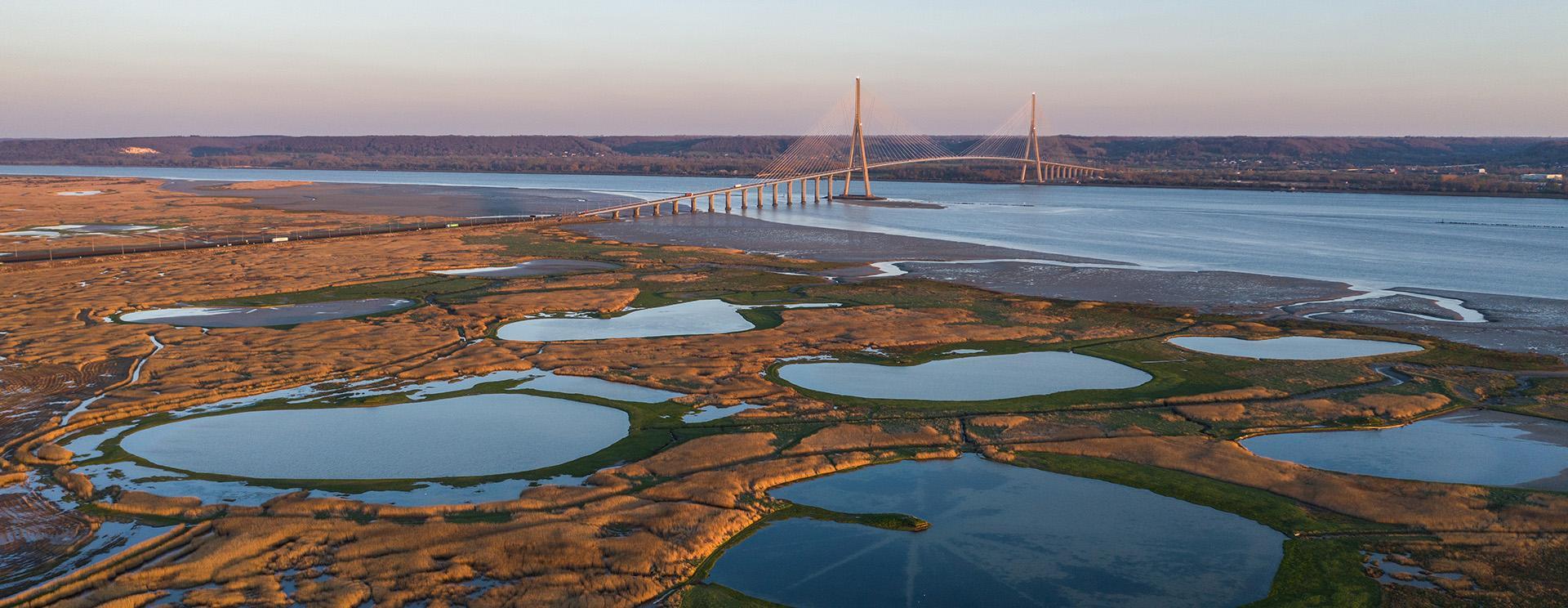- ABOUT US
- GOODS
- A multi-sector focus
- A maritime service offering in the first rank
- An attractive multimodal offering
- An expanded shortsea service offering
- Terminaux portuaires et quais à usage partagé
- High-quality ship services
- Fluid, facilitated goods throughput
- A port that puts its performance figures in the public domain
- PASSENGERS
- MULTIMODALITY
- ECOLOGICAL TRANSITION
- INNOVATION

An accelerator for the ecological and energy transition
Published on - Updated
Our action
HAROPA PORT researches, experiments with and supports the development of ever more environmentally friendly approaches to port operation and development.
Multimodality is central to HAROPA PORT’s missions. Indeed, the development of massified freight transport is the first lever to be used to reduce the negative impacts associated with the logistics chain (pollution, noise, congestion, accidents). The ecological, economic and societal stakes are so high that France’s leading port has set itself ambitious targets for 2025: 20% modal transfer for maritime container transport and 40% for bulk traffic.
Based along the whole length of the Seine, HAROPA PORT also endeavours to protect the local regions in which it is developing: management of natural spaces, conservation of biodiversity and ecological habitat continuity, protection of the human habitat for local residents.
The strategic project for 2025 is also part of the goal to decarbonise, working alongside various partners – local government and manufacturing industry – to address the challenge set by France’s national low-carbon strategy (SNBC) to limit global warming. HAROPA PORT was for example the first French port to develop a plan to reduce carbon emissions in its local areas.
In order to implement this ecological transition policy, the port is establishing partnerships with a range of actors and experts on the natural environments and habitats present along the Seine and on its estuary. The following are particularly noteworthy:
- AESN, the Normandy Seine water agency (agence de l'eau Seine Normandie ),
- GIP Seine-Aval, a public interest grouping,
- The regional nature reserve (Parc Naturel Régional des Boucles de la Seine Normande ),
- “Port vivant” (Living Port), a non-profit body specialising in port dock biodiversity,
- MDE, the nature reserve management agency (maison de l’estuaire).